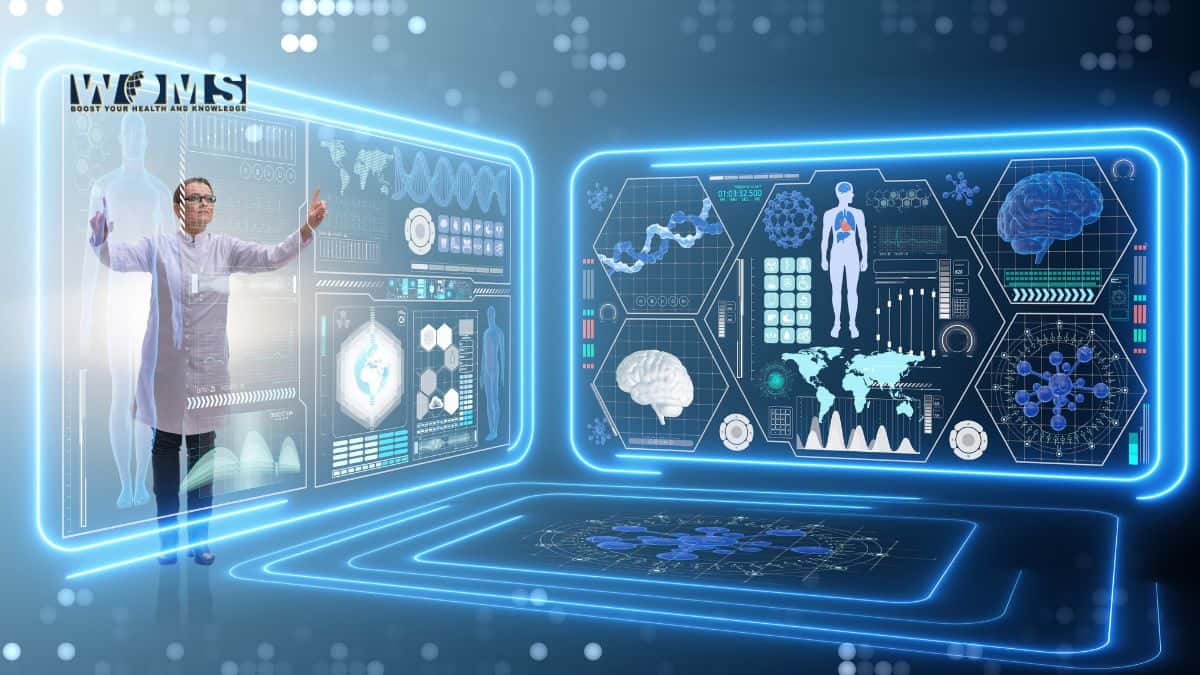Medicine & Machines: Examining AI Trends in Healthcare

It’s not known as the ‘digital age’ without good reason.
In the past 30 years we have seen huge advancements across a range of technologies which have significantly impacted almost every aspect of our lives. Not so long ago VHS was the dominant platform for film consumption, GPS was reading – and then attempting to fold – a ridiculously-sized paper map, and saving someone’s phone number involved a notepad, pen and landline. Now just a few decades later, you can stream any film under the sun directly on your smart TV, GPS is commonplace in most cars and adding, sharing and searching for contacts is as simple as the touch of a button. Alongside all of these amazing technological leaps also comes the latest shake-up in the tech world – the introduction and widespread use of artificial intelligence (AI). AI has resulted in major changes to traditional processes and practices across many different industries. With its ability to increase efficiency, productivity and help maintain safety standards it is little wonder more and more businesses and services are utilising AI. In particular, AI technology in nursing and healthcare has the ability to revolutionize patient care completely. It can also streamline workflows to help reduce a healthcare professional’s administrative load and be utilized at an educational level in universities or schools. Below we examine some of the recent AI trends in healthcare and what effect they are having on the industry.
AI impact on patient care
On a day-to-day basis healthcare professionals manage a number of different tasks relating to patient care including administering medication, monitoring symptoms, discussing treatments with doctors or other attending staff and general patient care. Through a combination of machine learning, deep learning, predictive analysis and remote patient monitoring, AI can help improve patient care by analyzing large sets of data to help recommend and improve decision-making and save time for the healthcare professional in charge.
Enhanced diagnosis
AI algorithms can be used to analyze patient data such as medical records, patients’ past history and diagnostic imaging and collate this into a report that identifies care recommendations, flags potential risks and even create personalized treatment plans. Google’s cloud business recently partnered with the Mayo Clinic in Minnesota to create new AI patient care solutions via an app called the Gen App Builder. The outcome was the app was able to more quickly identify patient information stored across various platforms to make predictions about the patient’s health and slow the course of unfavorable conditions which in turn saved time for healthcare professionals and provided a better outcome for patients.
Clinical decision-making
Manual risk calculation has been a process in the healthcare industry for decades, however with the help of AI a healthcare professional can provide predictions and suggestions with greater accuracy. AI can also utilize larger data sets to generate results and automated adjustments can be made to the modeling with ease. Fall risk prediction for example has historically required regular, manual assessment. Utilizing AI can reduce this admin-heavy task and provide greater accuracy by avoiding human error.
AI’s Impact on the Administrative Load
A healthcare professional’s primary focus should be patient care, so reducing time spent on admin-heavy tasks can help free up their schedule to focus on patient diagnosis and care.
Patient monitoring
AI patient monitoring systems can provide continuous reporting on patient vital signs and issue alerts when immediate human intervention is required. By providing a robust monitoring system, nurses and other healthcare professionals are free to monitor multiple patients simultaneously and provide care where appropriate to maximize their time and effort to the benefit of all their patients.
Workflow and process efficiency
Documentation and data entry are part of a healthcare professional’s duties, so utilizing AI to automate routine tasks via intelligent algorithms can help ease their workload and free them up to focus on direct patient care. AI can optimize assignments, create a comfortable work balance, schedule workload, utilize voice assistance systems for faster input of data and take on voice commands that can save precious minutes for a healthcare professional which, over time, adds up significantly and increases their work efficiency.
Telehealth and remote patient care
The COVID-19 epidemic had more than its fair share of impact on the healthcare industry. One big positive that came from it though was the rise of telehealth and remote patient consultations. AI technology can be utilised to assess patient’s conditions remotely, provide guidance and offer support – all from the comfort of one’s home which has the added bonus of reducing hospital admissions and thus the administrative work that comes alongside it.
AI’s Impact on Healthcare Education
AI trends in healthcare extend beyond actual industry practice. The integration of AI technology in healthcare education has the potential to revolutionize the way healthcare professionals study and learn. This is done through enhanced learning outcomes, personalized learning experiences, improving efficiency and improving outcomes.
On the whole the introduction of AI into the healthcare industry has had numerous benefits to healthcare workers including improving the diagnosis of patients, a reduction in the administrative burden and for those studying to enter the industry, improved learning techniques. However, with the introduction of AI technology comes a warning – the integration of AI should only be done after careful consideration that privacy and security concerns regarding those using the systems have been addressed. Ethical and legal concerns are at risk here, so it is vital they are reviewed and any AI technology used adheres to strict professional standards.




